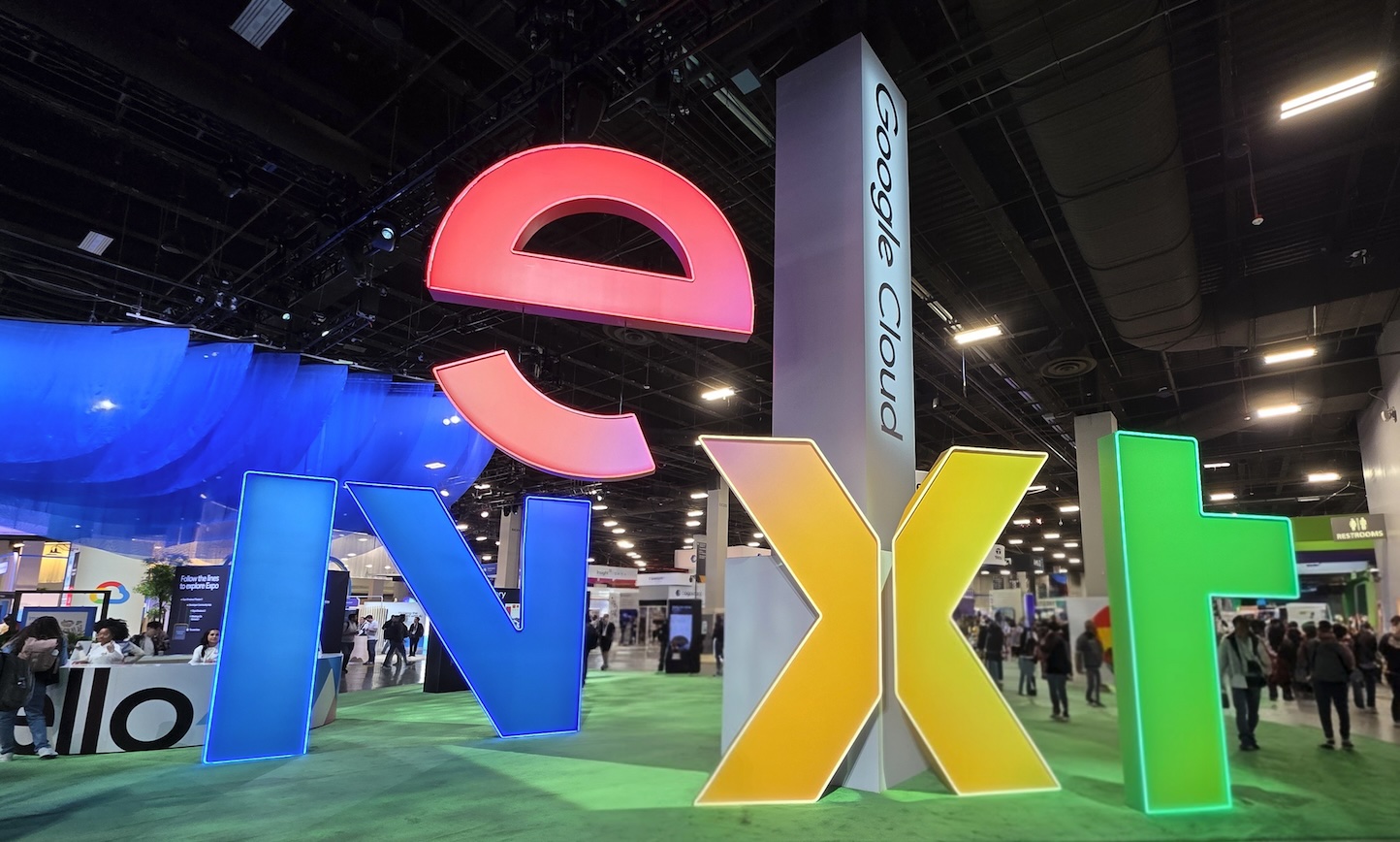Key Takeaways from Google Next 2025 for AI Agent Adoption

Executive Summary
Google Next 2025, held in Las Vegas from April 9-11, 2025, showcased significant advancements in AI agent technologies and provided a clear roadmap for corporations looking to adopt and implement AI agents effectively. This blog post synthesizes the key announcements, technologies, adoption strategies, and implementation best practices that can help corporations leverage AI agents to drive business results.
The event highlighted Google's commitment to agentic AI as its largest investment area for 2025, with a focus on specialized agents, interoperability, and enterprise-ready tools. With over 500 customer success stories shared during the event, Google demonstrated how organizations across various industries are already seeing tangible business impact from AI agent adoption.
Key AI Agent Announcements and Features
1. Specialized AI Agents
Google introduced a comprehensive portfolio of purpose-built agents designed for specific business functions:
- Customer Agents: Powering solutions for companies like Lowe's and Wendy's to enhance customer service experiences
- Automated customer support with natural language understanding
- Personalized shopping recommendations based on customer history
- Creative Agents: Streamlining creative workflows and reducing production time for brands like L'Oreal and Kraft Heinz
- Content generation and adaptation across multiple channels
- Visual asset creation and modification at scale
- Data Agents: Accelerating data analysis and insights generation at companies like Wayfair and AES
- Automated data cleaning and preparation
- Pattern recognition and anomaly detection
- Code Agents: Boosting developer productivity, including internal use at Google
- Code generation and optimization
- Automated testing and debugging
- Security Agents: Monitoring threats and enhancing security operations for organizations like Dunn & Bradstreet
- Real-time threat detection and response
- Vulnerability assessment and remediation
2. Agent Development Tools
Google unveiled several new tools to simplify agent creation and deployment:
- Agent Development Kit (ADK): An open-source framework that enables developers to build sophisticated AI agents in under 100 lines of code, already being used by brands like Renault and Revionics
- Pre-built components for common agent capabilities
- Extensible architecture for custom functionality
- Agent Engine: A fully managed runtime on Vertex AI that supports short and long-term memory, built-in evaluation tooling, and native integration with Google's Agentspace
- Scalable infrastructure for agent deployment
- Performance monitoring and optimization tools
- Agent Assembler: A no-code tool within Agentspace that makes AI agent creation accessible to employees without technical expertise
- Drag-and-drop interface for agent design
- Template library for common use cases
- Agent Garden: Provides samples and connectors to accelerate agent development
- Chrome Integration: Enables seamless access to AI agents within the browser environment
3. Agent Interoperability
- Agent2Agent (A2A) Protocol: A first-of-its-kind open standard developed in collaboration with over 50 industry partners that enables AI agents built by different vendors or on different frameworks to securely communicate, exchange information, and coordinate actions
- AI Agent Marketplace: A dedicated section within Google Cloud Marketplace where customers can easily browse and purchase AI agents from partners
4. Infrastructure Improvements
- Ironwood TPUs: Google's 7th-generation Tensor Processing Units offering 5x more peak compute capacity and 6x the high-bandwidth memory capacity compared to the previous generation
- Gemini 2.5 Flash: A new low-latency model optimized for fast reasoning and cost-efficiency
- Cloud Wide Area Network (Cloud WAN): Makes Google's global private network available to enterprises, delivering up to 40% faster performance compared to the public internet
Implementation Best Practices
Based on the Google Next 2025 announcements and customer success stories, here are key implementation best practices for corporations looking to adopt AI agents:
1. Start with Specialized Agents for Quick Wins
- Begin with purpose-built agents that address specific business challenges
- Focus on areas with clear ROI potential, such as customer service, data analysis, or security operations
- Use the success of initial deployments to build momentum for broader adoption
2. Leverage No-Code and Low-Code Tools
- Use Agent Assembler to democratize AI agent creation across the organization
- Empower business users to create agents without deep technical expertise
- Enable developers to build more sophisticated agents using the Agent Development Kit
3. Ensure Integration with Existing Systems
- Connect AI agents with your existing IT landscape using Google's open and multi-cloud capabilities
- Utilize the Agent2Agent Protocol to enable communication between agents built on different frameworks
- Integrate with databases, document stores, and ISV applications to maximize value
4. Build for Interoperability
- Ensure that AI agents are designed to work with other systems and platforms
- Use the Agent2Agent Protocol to enable communication between different AI agents
- Implement a consistent data format and API for interoperability
5. Address Security and Compliance Requirements
- Implement strong security measures to protect AI agent data and operations
- Ensure compliance with relevant data protection regulations
- Establish clear policies and procedures for AI agent usage
6. Measure and Optimize Performance
- Establish clear metrics for AI agent performance and business impact
- Use built-in evaluation tooling in Agent Engine to assess agent effectiveness
- Continuously refine and improve agents based on performance data
7. Establish Strong Data Foundation and AI Readiness
- Conduct thorough data quality assessments and implement data governance policies
- Ensure data is properly structured, labeled, and accessible for AI agent consumption
- Build data pipelines that can support real-time agent operations and learning
- Develop clear data privacy and handling protocols for AI agent interactions
- Create a data strategy that aligns with both immediate AI agent needs and future scalability
Real-World Success Stories
Google Next 2025 showcased over 500 customer stories demonstrating tangible business results from AI agent adoption:
- Lowe's and Wendy's: Implemented customer agents to enhance service experiences
- L'Oreal and Kraft Heinz: Used creative agents to streamline workflows and reduce production time
- Wayfair and AES: Deployed data agents to accelerate data analysis and insights generation
- KPMG and Wells Fargo: Adopted Agentspace to provide accessible AI tools to employees
- Dunn & Bradstreet: Implemented security agents to monitor threats and enhance security operations
Conclusion
Google Next 2025 demonstrated that AI agents have moved beyond theoretical potential to delivering real business impact. The event showcased a comprehensive ecosystem of specialized agents, development tools, and interoperability standards that make it easier than ever for corporations to adopt and implement AI agents effectively.
By following the adoption strategies and implementation best practices outlined in this report, corporations can leverage Google's AI agent technologies to drive productivity, enhance customer experiences, accelerate innovation, and achieve tangible business results.
The key to successful AI agent adoption lies in starting with specific business challenges, leveraging purpose-built agents and development tools, ensuring integration with existing systems, building for interoperability, addressing security and compliance requirements, and continuously measuring and optimizing performance.
